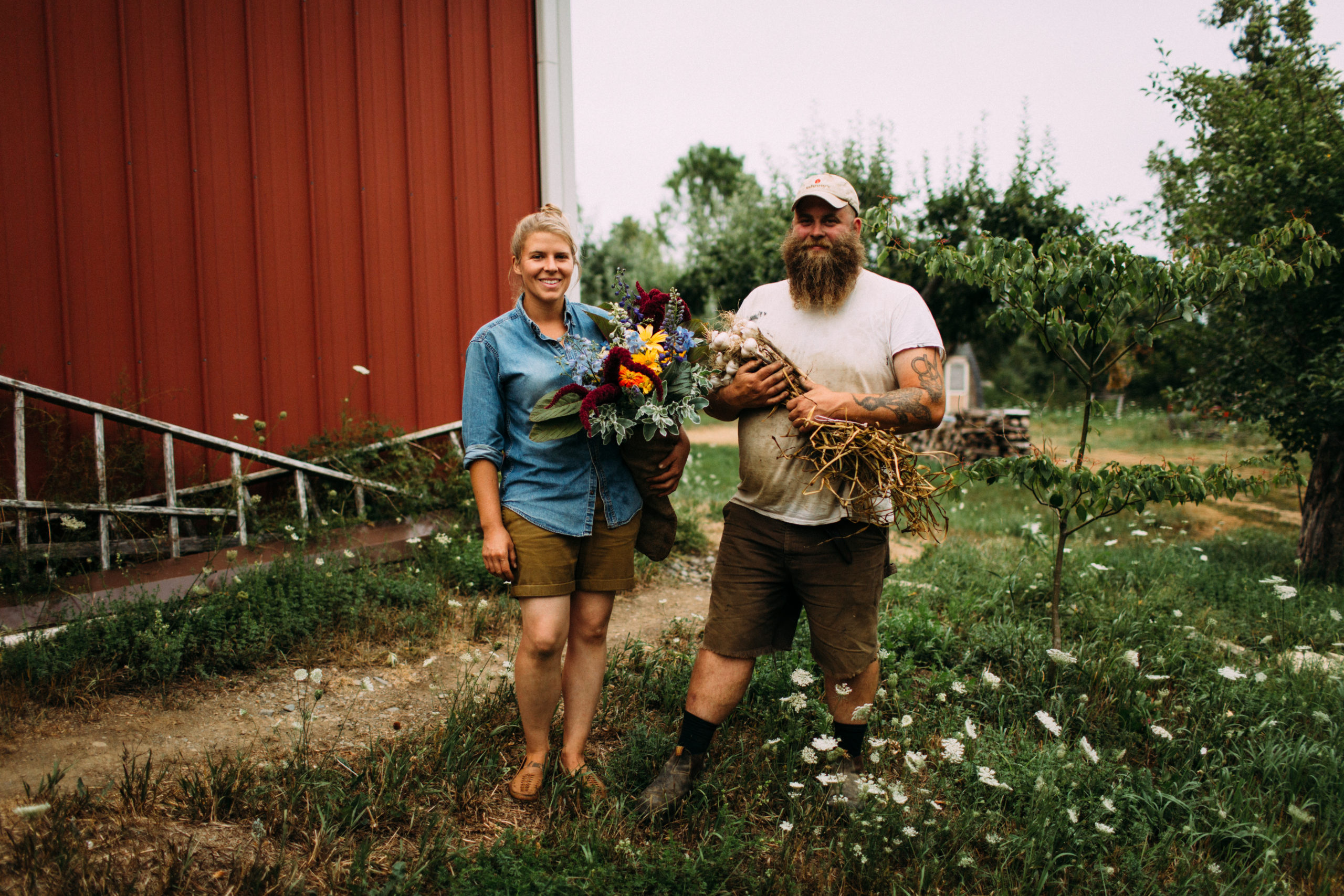
Apr 2, 2021
How organic growers’ advice fueled Buckle Farm’s success
The wisdom of growers of other types of crops helped take a New England organic farming couple’s farming operation to new agronomic and financial heights. Jim Buckle and Hannah Hamilton’s rejuvenated organic operation overcame their farming challenges and helped them become better stewards of their land. The lessons they learned could help growers throughout all of agriculture.
The Buckle Farm’s motto is “New England Grown for New England Kitchens.” Based in Unity, Maine, in the south-central part of the state, a half hour from the Atlantic Ocean’s Penobscot Bay, the Buckle Farm grows butternut squash, a variety of onions and potatoes, tomatoes, peas and other organic vegetables for wholesale buyers and distributors in Boston, Massachusetts and the mid-coast region of Maine.
The farm had been selling to seven regular restaurant accounts each season, but 2020’s pandemic cut that to two. The Buckle Farm is midway between Augusta, Maine, the state’s capitol, and Bangor, Maine.
The Buckle Farm works with three primary wholesalers which distribute throughout New England. A. Russo & Sons, a Watertown, Massachusetts wholesaler and retailer, serves customers in the Boston area and parts of New Hampshire and Rhode Island. Crown O’ Maine Organic Cooperative distributes from Vassalboro, Maine, to much of the state plus Boston. Daybreak Growers Alliance, a Knox Center, Maine, grower-owned distribution network, offers a variety of multi-farm community-supported agriculture shares and wholesale distribution throughout Maine.
In the growing business
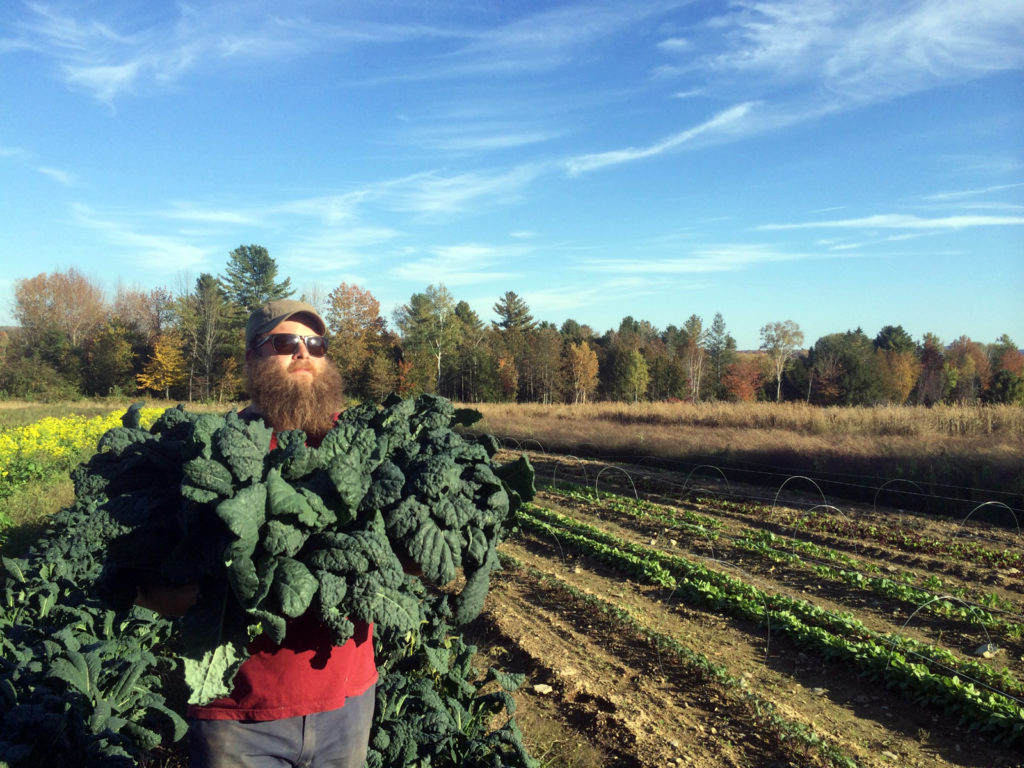
The Buckles grow on eight tillable acres plus four nearby leased acres. They focus on a three-season production schedule. In spring, the Buckles concentrate on radishes, baby beets, fennel, scallions and chicories. During the summer, it’s fresh bunching onions, garlic, tomatoes, new potatoes and watermelon. The fall is when the Buckle Farm harvests its highest volume crops: apples, butternut squash, storage onions and storage potatoes.
The crop schedule is a lot simpler than when the farm first started. Originally, the Buckles grew a large variety of vegetables they ambitiously marketed. The farm grew fast, as well as the need for labor and infrastructure. Crop rotation, cover cropping and record keeping were laboriously complex. Produce saturated the farmers markets the Buckles served, which coincided with the rise of Boston’s home delivery outfits.
Labor shortages ensued while climate change brought drier summers to the Pine Tree State. The Buckles feared burnout. Though they started the business with a long list of ideals, goals and lofty dreams, the most important one was to create a business that would allow them to farm together until retirement, said Hamilton.
Change is gonna come
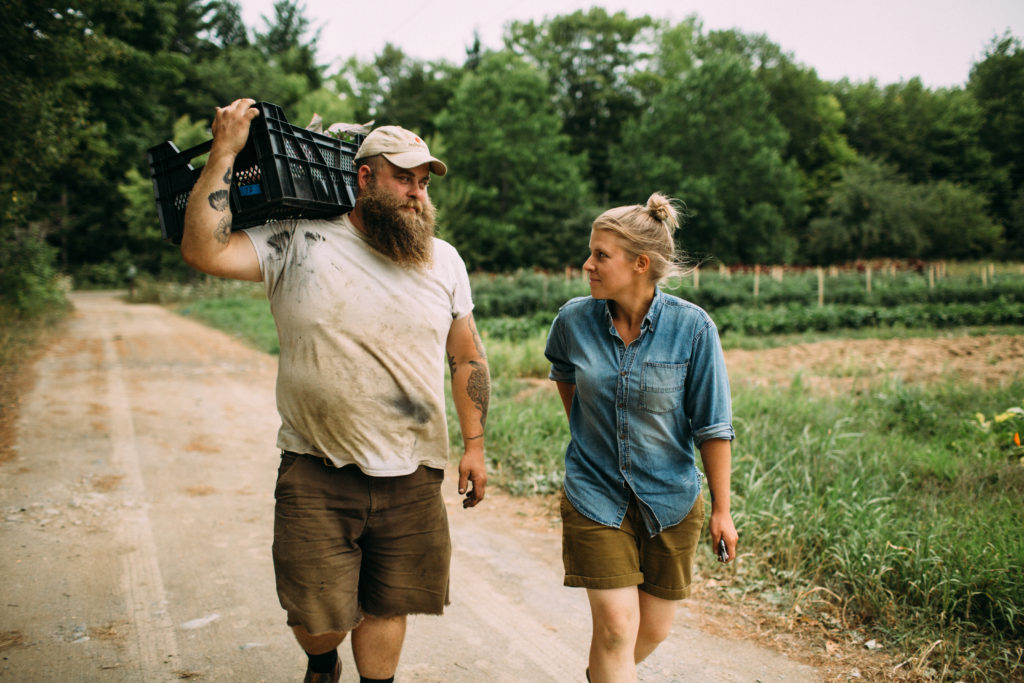
Photo: Ashley Jardim
They needed to change their business model. As the couple rethought their plan, they looked outside their close-knit community of small organic farms and interacted with New England’s larger conventional and specialty vegetable operations and farmers throughout the country, including Canada and Europe.
The Buckles participated in trade shows and conventions where they met growers producing specialized crops – from industrial commodity growers to no-till organic farmers and everything in-between – through lean and efficient systems. The couple developed a vision of a small scale but nearly fully mechanized farm producing mostly crops for the wholesale market. It wasn’t the model of the previous generation of organic farmers in Maine, but it offered a glimpse of long-term economic sustainability and a greater capacity to feed the region.
Outside the novelty of meeting farmers from different backgrounds, the Buckles discovered there is a surprising amount of shared interests, concerns and hope for the future of farming.
“Conventional farming and organic farming have and will continue to be presented as in opposition to each other, and as the solution to the other,” Jim Buckle said. Organic farming values soil health, biodiversity and low-impact production methods, but is considered expensive and inaccessible. In contrast, large-scale conventional farms value cheap production at a massive scale and ecological impact, he said.
“Organic farming cannot realistically feed the world, and conventional farming cannot realistically continue to contribute to greenhouse gas emissions, pollinator decline, water quality decline and community health issues at the rate it does now,” contended Buckle. “It’s a harsh reality, and easy to place blame on the ‘other guys,’ but we must find connections with those who share our motivations and ambitions. And we must be adventurous about it.”
“Now is a time of immense technological advancement in agriculture, across all scales and production methods, to build bridges, to collaborate, to think disruptively and find common interests,” Buckle said. “This outlook may sound naive, but I believe it is a matter of survival for agriculture in America.”
Crunching numbers
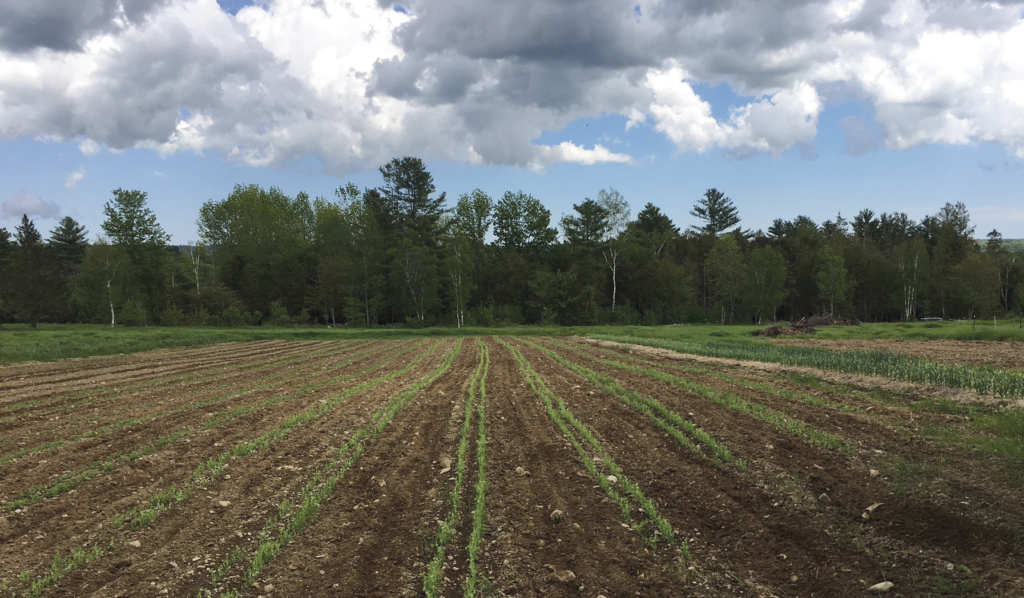
In early 2019, the Buckles participated in Farming for Wholesale, a farm business planning program providing professional resources to develop a transition plan and a business strategy focused on business growth goals. It included farming without hired labor, growing fewer crops while simultaneously increasing each crop’s yields, lowering financial risk, boosting the farm’s gross margin and generating funds to cut farming debt.
In the first year, the farm shrunk in size and revenue. However, profits and per-acre yields later increased. Mechanization efficiencies allowed the Buckles to expand yields while planting fewer acres than with the older model. The change allows them to cover crop more acreage more often.
By focusing on the crops and specific varieties best adapted for the farm’s soil, the Buckles trimmed organic pesticide applications and other interventions. The streamlined production accelerated soil building. As one of organic production’s first principles, healthy soil was alluring to Buckle when he first farmed.
“It can be difficult to break your dream down into numbers and spreadsheets, and to trim away the crops that may hold the most allure to you,” said Buckle. “However, a farmer that is truly dedicated to stewardship and sustainability will discover that flexibility and steadiness are key. Farming is a long game. It will likely not make you wealthy, but it should build your soul. Soil is a long game, but it is one of your most worthwhile investments. Retail markets will shift and evolve, but people will continue to value farm-grown food.”
Strong personalities
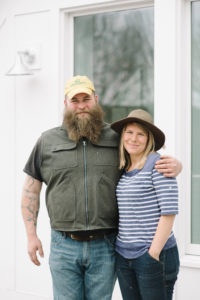
Born in Turner, Maine, Buckle, like Hamilton, grew up in several New England states. In 1997, Buckle moved from Connecticut to Unity to attend Unity College. There he was introduced to farming. Buckle worked as a field hand on organic vegetable farms and in apple orchards.
After graduating with a forestry degree, he decided to start his own farm. He bought land in a secluded hillside area tucked into the woods of Montville, Maine, down the road from Unity. In the early days of the organic movement, Buckle became a certified organic grower. He was one of the few organic growers supplying restaurants and farmers markets in Portland, an hour and half away.
While demand for his crops was high, organic crop inputs were expensive and difficult to purchase. In 2004, Buckle closed his farm and worked as a farm manager at a large historical farm in Massachusetts, where he learned all he could about farming for wholesale. There, Buckle managed 35 workers and built strong business relationships with Boston’s restaurants. Buckle, however, wanted to return to running his own farming business.
In 2011, Buckle started a farm in Dighton near Middleborough in Massachusetts’ cranberry growing region. In Boston, Buckle met and later married Hamilton, who grew up on a Vermont Christmas tree farm who also long aspired to start a small farm. She possessed an art and design background.
A new start
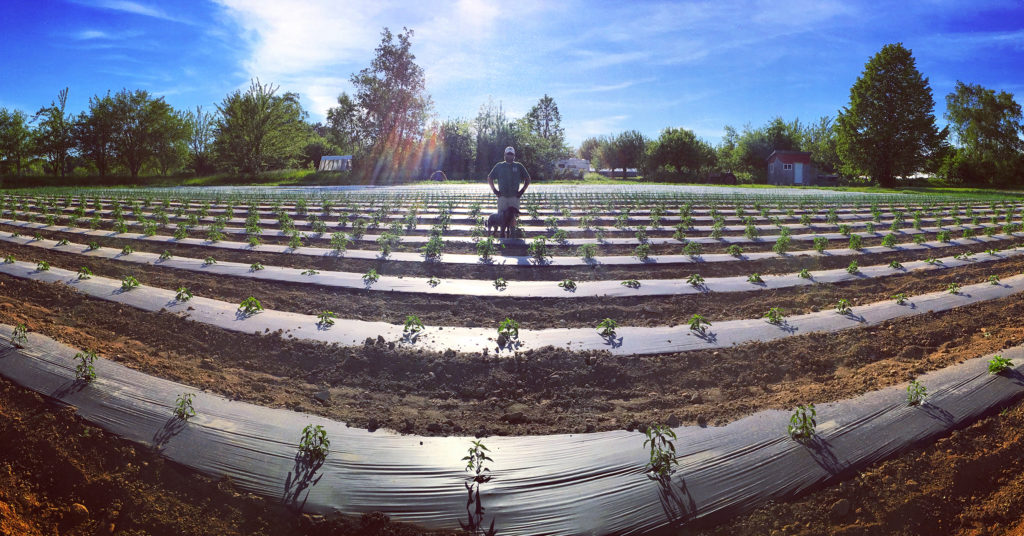
After farming on the property of only a few acres, Buckle realized the farm wasn’t large enough to support him and its high property taxes. In 2014, after securing new property through a lease-to-own agreement with Maine Farmland Trust, Buckle returned to Maine.
The couple purchased the property in 2018. They soon started making improvements to the farm which included installing in-ground irrigation, constructing a septic system and restoring the farm’s heirloom apple orchard.
After visiting and conversing with a large variety of farmers, the couple learned the importance of letting their land and geography determine the details of their vision, instead of the other way around. “The Buckle Farm’s original business model works for some farms, but not every farm,” Buckle said. The couple met many young farmers in similar situations to the Buckle’s early years: trying to do too much, too soon with not enough budget along with too much reliance on manual labor.
“We found the common ground in land stewardship and food production: a bond that fortified us all to work through the loneliness and heartbreak that comes with the profession,” said Buckle. “What have I learned after all these years of listening to them? A few things: Family means everything, soil is critical to survival and farming is a big responsibility so take it seriously.”






